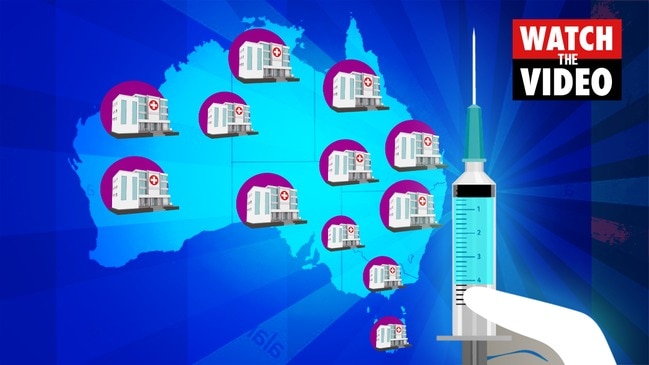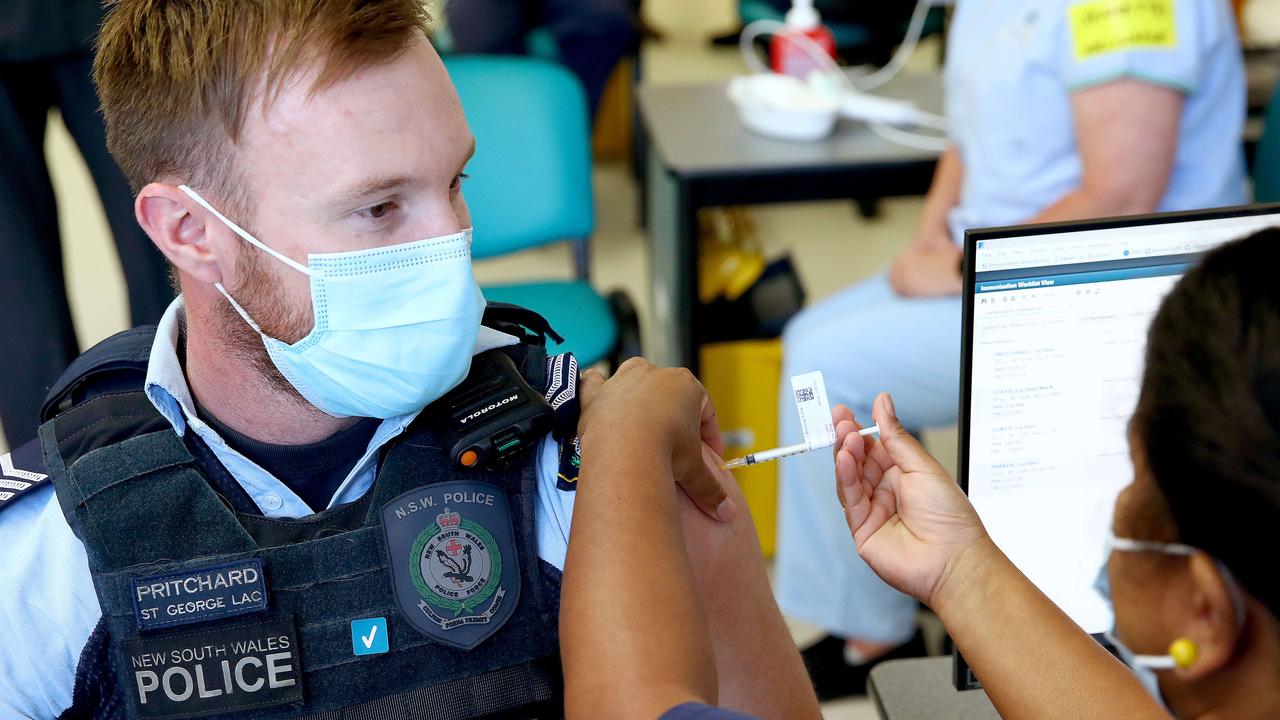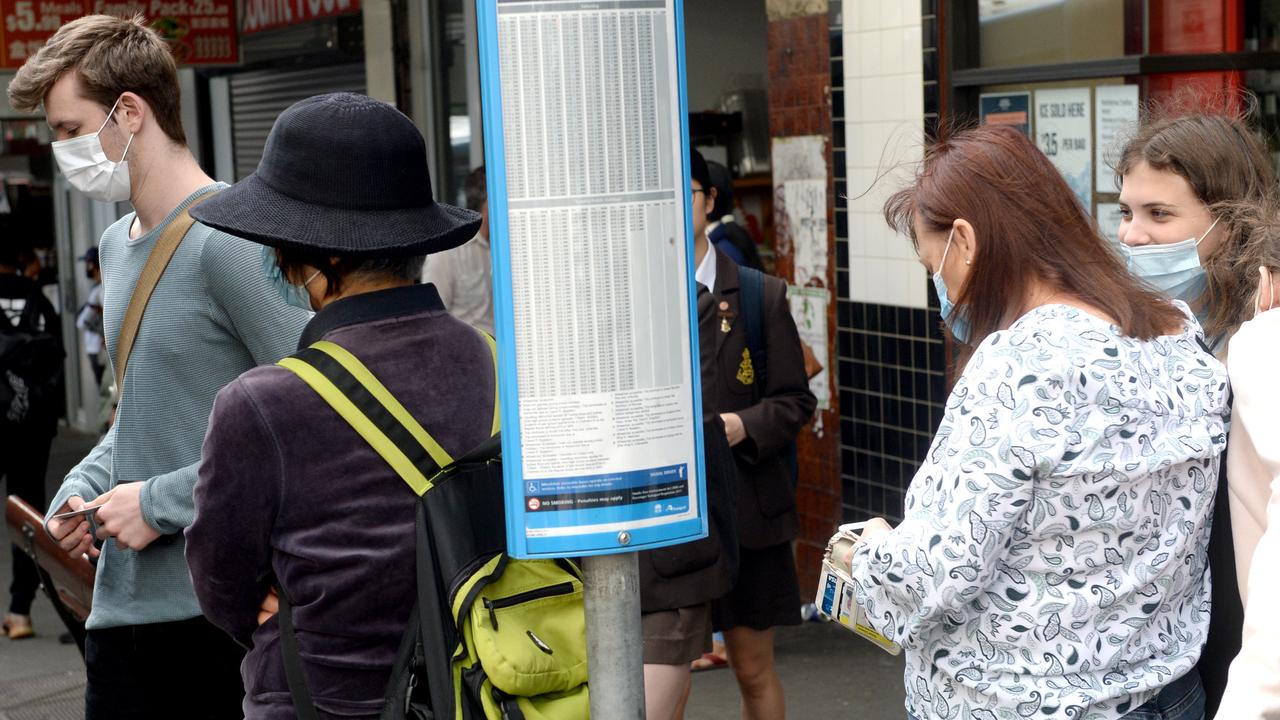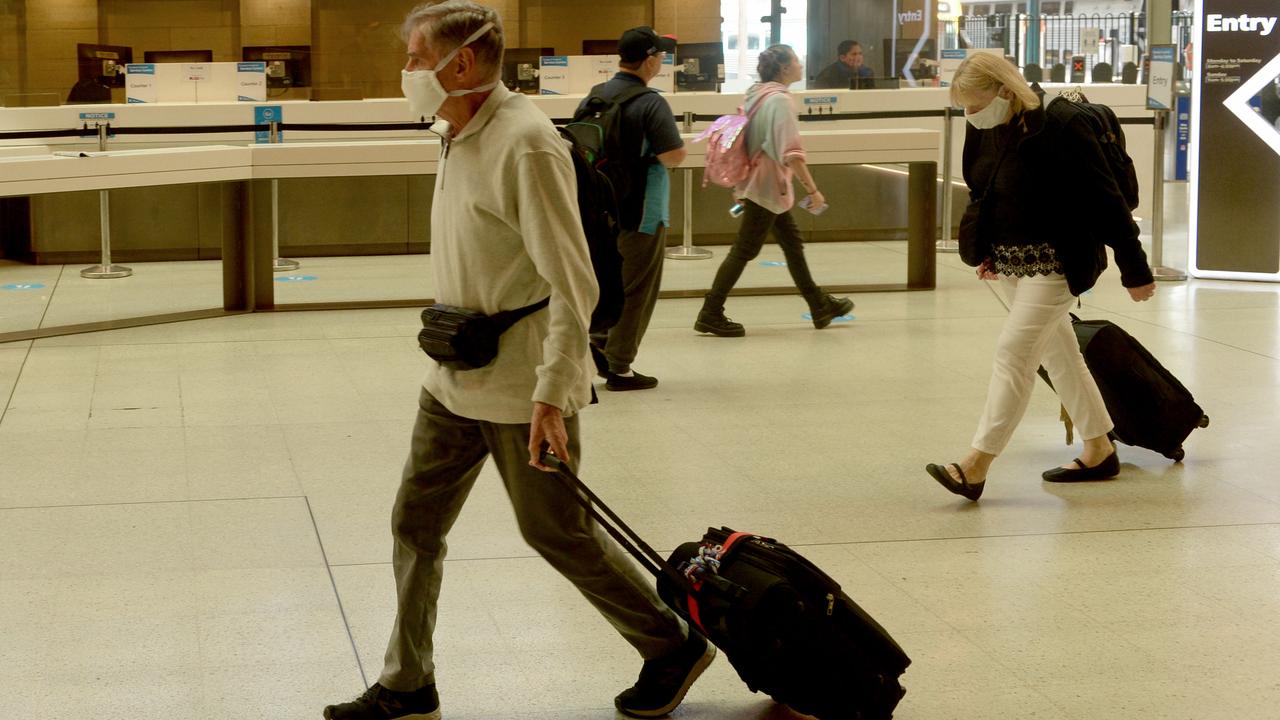How the coronavirus vaccine will change our lives in Australia
It’s the game-changer many Australians have been eagerly waiting for, but how long will it take for the vaccine program to change our lives?

Australia’s vaccination program is finally under way with thousands of people getting the jab in the first week.
The start of the COVID-19 vaccination push provides hope that life can soon to return to normal.
Experts have warned the process may take longer than people expect but the program will spark changes in how coronavirus outbreaks are managed and what people will be allowed to do.
“We’ll never stop the spread of the virus because it’s so widespread in the world,” infectious diseases expert Professor Peter Collignon of Australian National University said.
“However, once we’ve protected a majority of the population, it’s not as big a disaster if the virus spreads a bit because those who are most likely to die are protected.”
Prof Collignon told news.com.au the vaccine was good news but it was not going to be an overnight success.
“We won’t know the outcome of the vaccination program until the end of the northern hemisphere’s next winter (which ends in February next year),” he said, noting that Melbourne’s largest outbreak occurred during its winter.
“This is going to be a virus that hangs around and more in winter; there won’t be zero spread,” he said.
He also noted that a vaccine for children won’t be available before the end of the year.
“So we’ve realistically got to live with some restrictions for another year.”
However, some things will change as more people get vaccinated.
“We can accept a slightly higher level of risk because the consequences are not as severe if the virus spreads,” Prof Collignon said.
Here’s what we can expect.
RELATED: Calculator estimates when Aussies will get the jab

FEWER ‘SHORT, SHARP’ LOCKDOWNS
One of the first things to “fade into the background” will likely be the circuit-breaker lockdowns that have become a favourite way for some states to respond to small COVID outbreaks.
Epidemiologist and Deakin University Professor Catherine Bennett told news.com.au that if vaccines prove to be effective, there will be less pressure on authorities to fall back on three and five-day lockdowns, because there will be less risk in relying on contact tracing.
“We’ll see less dramatic responses because we’re managing the threat differently,” Prof Bennett said.
“The virus will spread less and so we don’t have to rely on these additional safety nets of sharp, circuit-breaker lockdowns.
“Hopefully they will be the first thing to fade into the background.”
NO MORE LAST-MINUTE BORDER DASHES
Getting stuck on the wrong side of a border closure is also likely to be a thing of the past.
“Internal border closures will be less necessary because even if the virus does cross borders, the outcome will be less scary as authorities will have a better chance of closing it down,” Prof Bennett said.
‘HEY, GOODBYE’: RETURN OF BIG EVENTS
If you miss the hyped-up energy of a big crowd then you will also be in luck.
Prof Bennett believes large stadium events will also be back on the agenda and it’s also likely that they will be allowed to run at full capacity.
However, she also believes that stadiums built in the future may actually change.
“They might not have people on top of each other, and may separate people so they can enter and exit easily,” she said.
“I think people will be engineering (COVID) into our designs.”
MORE PEOPLE AT WORK AND ON THE BUS
We’ll soon start seeing busier public transport and lots more people returning to offices as limits on crowds loosen.
“I don’t things will get back to normal (pre-COVID) for at least another year or maybe even two years but things will be able to relax,” Prof Collignon said.
This is on the proviso that the vaccines continue to work and provide immunity for one or two years at least.
RELATED: When and where can I get vaccinated?

JETSETTING ONCE AGAIN
One of the holy grails of a post-COVID world is the return to overseas travel and the rate of vaccination will have a huge role to play in the timing of this.
Prof Bennett believes it will become clear in the next few months how much the vaccines reduce the transmission of COVID-19 and this will put Australia in a good position to consider when to re-open borders.
The most important question is whether Australians are prepared to live with the virus, as opening borders will leave the country susceptible to cases coming in, even with a vaccine.
Even if a vaccine is 90 per cent effective at stopping transmission, which is still unclear at the moment, this means one in 500 would still get the disease.
“If Australians went to England, one in 500 would come back with it, even if they were vaccinated because it is not 100 per cent effective,” Prof Collignon said.
The risk at the moment is around one in 50.
As Australia begins to dip its toe into resuming overseas travel, Prof Bennett said it was possible new measures could be introduced, such as rapid COVID screening at airports, with those who test positive going into isolation or quarantine.
Prof Bennett also believes more travel bubbles will likely be formed before borders are completely opened.
Prof Collignon agrees that travel to low-risk countries like Singapore and possibly Japan, may soon be allowed. He said travellers from these regions may be able to do home quarantine rather than hotel quarantine.
He said Australia could be in a good position by July or August to consider this as most at-risk people should be vaccinated by this time.
RELATED: Should you wait for a better vaccine?

However, once countries around the world began fully opening up, it will be difficult for Australia to maintain travel bubbles.
“If one country opens up, Australia has got to decide whether to close off the travel bubble with them, or they may as well open up as well,” Prof Bennett said.
“I think international pressure will move us out of the bubble pretty quickly.”
The desire for a return to international travel could even change the conversation around vaccination and possibly encourage those who were reluctant to get the jab to be vaccinated.
“If it comes back to how much freedom they can have and whether we can open international borders without depending on quarantine, I think people will lose this hesitancy that seems to be out there at the moment,” Prof Bennett said.
“Maybe they can deal with a slight fluey day (after getting the jab) if it means they can travel to Bali during our winter – it’s in our hands.”
THINGS THAT ARE HERE TO STAY
Not everything will change and there are also some things that Prof Bennett believes will become part of our post-COVID world.
She said things like ordering remotely from tables at a restaurant, and paying for bills using contactless methods instead of cash, will stick around.
“These are all just little modifications to everyday practices that reduce risk, not just of COVID, but of any microbial exchange between people, which is actually a good thing,” she said.
It’s also possible that the screens at registers in supermarkets will become a permanent feature.
“They aren’t going to just take them down and I think if they build new supermarkets that screens will be built in. People will expect them.”
Masks will also likely continue to be used by some, even if they are not compulsory anymore.
“I think we’ll all have masks at home and if you need to use them, you’ll just whip them out,” Prof Bennett said.
charis.chang@news.com.au | @charischang2




